28 Eventual Realities People Without A Spouse Or Family Should Prepare For
Aging alone can be both a liberating and daunting journey. While you have the freedom to forge your own path, without the traditional safety nets of a spouse or immediate family, it becomes crucial to anticipate future needs and challenges.
With autonomy comes the responsibility of planning wisely to sustain independence, security, and fulfillment in later years.
Embracing this reality empowers you to make informed decisions that align with your personal values and desired lifestyle.
1. Planning for Long-term Housing

Choosing a home that supports both independence and accessibility is a key consideration for solo agers. It’s important to think ahead about where you’d like to live as you grow older. Your home should be a haven of comfort and safety, with features that accommodate any future mobility issues.
Consider open floor plans, single-level living, and proximity to essential services like healthcare and shopping. These elements not only enhance your quality of life but also ensure that you remain active and engaged in your community. Adapting your current home or selecting a new one with these features in mind can provide peace of mind.
Engage with professionals who can assess your home’s adaptability or consult with real estate experts to explore properties designed for aging in place. Proactively planning your living arrangements can significantly impact your ability to age gracefully and independently.
2. Building a Strong Social Network

Cultivating a vibrant social network is essential to prevent feelings of isolation and loneliness as you age. Without a spouse or family, friends become your chosen family, offering support and companionship. Actively nurturing relationships can provide emotional and practical support.
Participate in community groups, clubs, or volunteer opportunities to meet like-minded individuals. Engage in activities that interest you, such as book clubs, walking groups, or hobby classes. These interactions not only enrich your life but also create a reliable support system.
Make it a priority to maintain regular contact with your social circle. Whether through phone calls, social media, or in-person gatherings, these connections are vital for your mental and emotional well-being. A strong social network can be a lifeline, offering encouragement and joy.
3. Ensuring Financial Security

Securing financial stability is a crucial component of aging independently. As a solo ager, you must ensure that your resources are sufficient to cover medical expenses, housing, and daily living costs. Having a comprehensive financial plan can alleviate stress and uncertainty about the future.
Start by evaluating your current savings, investments, and any potential sources of retirement income. Consulting with a financial advisor can provide valuable insights into managing your assets and planning for unforeseen expenses.
Consider long-term care insurance or other financial products designed to support your needs as you age. Being proactive and informed about your financial situation allows you to make decisions that align with your goals and ensure a comfortable lifestyle.
4. Making Legal Arrangements for Healthcare Decisions

Establishing legal arrangements for healthcare decisions is vital for solo agers. Without family to advocate for you, it’s important to ensure your healthcare preferences are known and respected. Begin by appointing a trusted friend or professional as your healthcare proxy.
Draft a living will or advance directive to outline your wishes regarding medical treatment, should you become unable to communicate them yourself. These documents serve as a guide for healthcare providers and ensure your choices are honored.
Regularly review and update your legal documents to reflect any changes in your preferences or circumstances. Clear, legally binding arrangements provide peace of mind and prevent potential disputes about your healthcare.
5. Creating a Support System
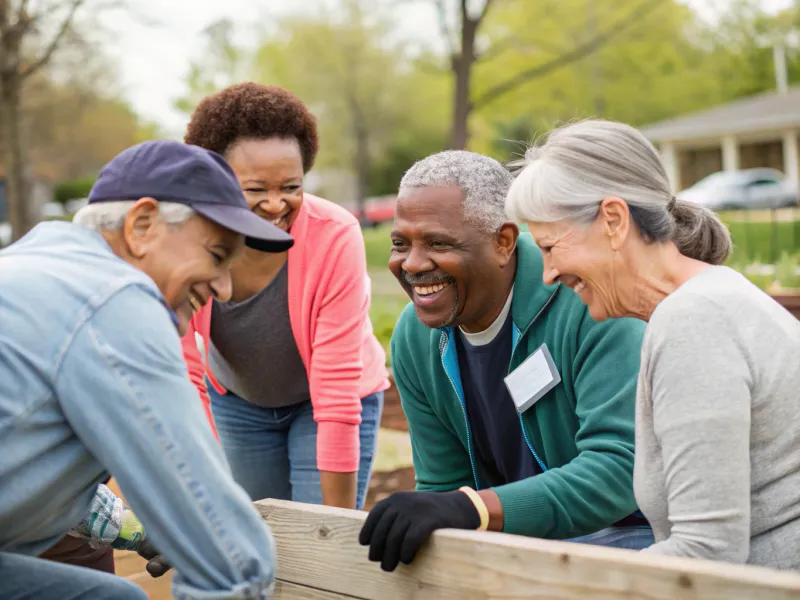
Developing a robust support system is crucial for solo agers. This network can include friends, neighbors, and community resources that provide help and companionship. Building this system ensures you have people to rely on during times of need or emergency.
Engage with your local community to foster relationships with those around you. Participate in neighborhood events or join community organizations where you can contribute and connect with others.
Having a reliable support system enhances your resilience and ability to navigate challenges. It provides a sense of belonging and security, knowing there are people who care about your well-being.
6. Developing a Structured Routine

Maintaining a structured routine can provide purpose and fulfillment as you age. Establishing daily habits helps combat feelings of aimlessness and ensures that each day is meaningful. A routine keeps you engaged and active, promoting mental and physical health.
Incorporate activities that stimulate your body and mind, such as exercise, hobbies, and learning opportunities. Allocate time for relaxation and reflection, fostering a balanced lifestyle.
Adapting your routine to accommodate changing abilities or interests ensures it remains relevant and satisfying. A well-planned routine can significantly enhance your quality of life, providing a sense of stability and accomplishment.
7. Learning to Navigate Healthcare and Insurance

Navigating the complexities of healthcare and insurance without a family advocate can be daunting. Understanding your options and rights is essential for accessing the care you need. Educate yourself about different healthcare plans and the benefits they offer.
Consider attending workshops or consulting with a healthcare professional to gain a clearer understanding of the system. Familiarize yourself with the details of your insurance policy to avoid unexpected costs and ensure that you receive appropriate medical care.
Being informed empowers you to make decisions confidently and advocate for yourself in the medical system. Taking charge of your healthcare ensures you receive the necessary attention and support as you age.
8. Exploring Assisted Living Options Early
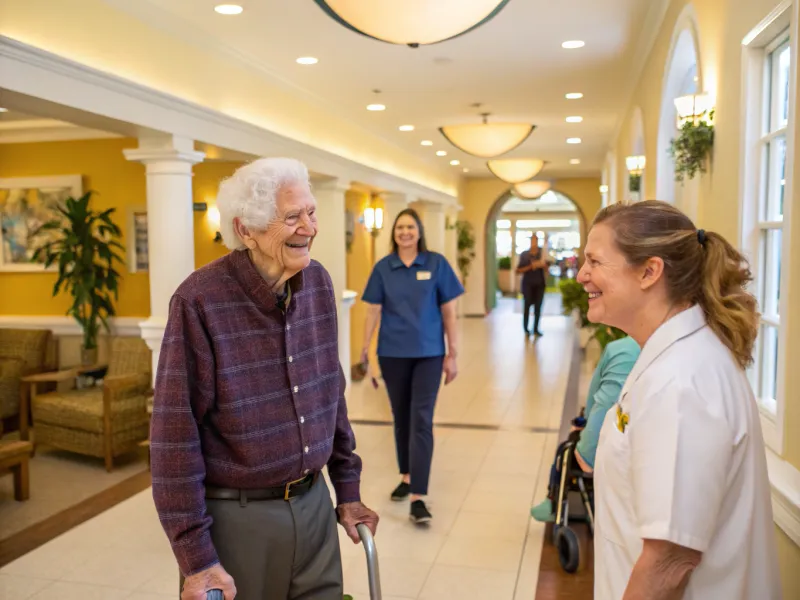
Exploring assisted living options early is a proactive step in planning for your future. Waiting for a crisis to make these decisions can limit your choices and increase stress. By researching and visiting facilities ahead of time, you can find a community that aligns with your preferences and lifestyle.
Consider factors such as location, amenities, and the level of care provided. Speak with residents and staff to gain insights into daily life at the facility. Knowing what to expect allows you to make informed decisions when the time comes.
Having a plan in place for potential transitions provides peace of mind and ensures that your needs will be met effectively. This foresight allows you to maintain control over your living situation as you age.
9. Establishing a Healthy Lifestyle
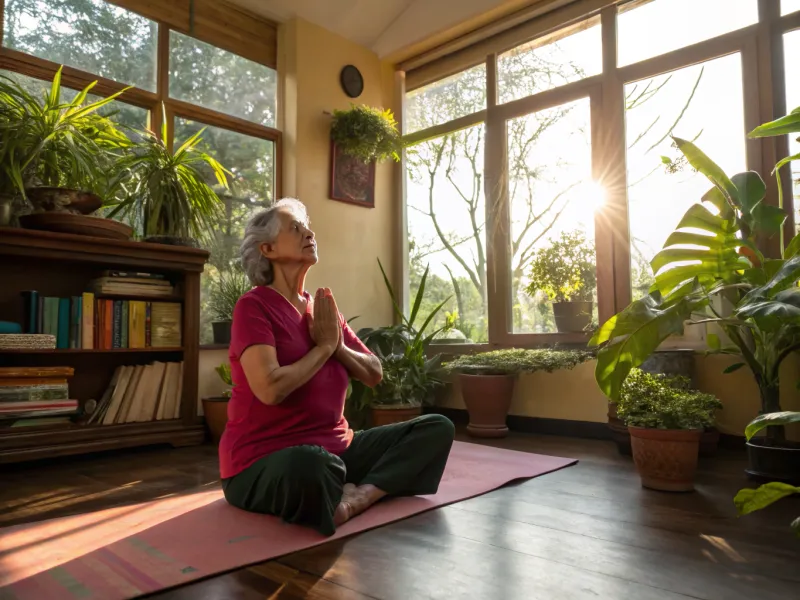
Adopting a healthy lifestyle is essential for maintaining independence and vitality as you age. Focusing on physical fitness, nutrition, and mental well-being can greatly enhance your quality of life.
Incorporate regular exercise into your routine, such as walking, yoga, or swimming. These activities promote strength, flexibility, and cardiovascular health. Pair physical activity with a balanced diet rich in fruits, vegetables, and whole grains to support overall wellness.
Mindfulness practices like meditation or journaling can further enhance mental clarity and emotional resilience. By prioritizing health, you equip yourself to handle the challenges of aging with grace and energy.
10. Adapting to Technological Advances

Embracing technology can significantly enhance your independence and connectivity. As a solo ager, staying informed about technological advances allows you to maintain social connections, access information, and manage daily tasks more efficiently.
Take the time to learn how to use devices like smartphones, tablets, and computers. Participate in community tech classes or seek assistance from tech-savvy friends to boost your confidence and skills.
Utilizing technology enables you to stay engaged with the world and access services that support your well-being. It can also facilitate healthcare management by offering tools for medication reminders and virtual doctor appointments.
11. Preparing for Emergency Situations

Being prepared for emergencies is crucial, especially when aging alone. Having a plan in place ensures that you’re ready to handle unexpected situations with confidence and efficiency.
Create an emergency kit with essentials such as a first aid kit, flashlight, batteries, and important documents. Familiarize yourself with local emergency services and establish a communication plan with neighbors or friends.
Regularly update your emergency supplies and review your plan to ensure it remains effective. Being proactive in your emergency preparedness provides peace of mind, knowing you are equipped to protect yourself in any situation.
12. Engaging in Lifelong Learning

Lifelong learning keeps your mind sharp and curiosity alive. As you age, engaging in educational pursuits provides mental stimulation and a sense of accomplishment. It’s never too late to explore new interests and expand your knowledge.
Consider enrolling in courses, attending workshops, or joining discussion groups on topics that intrigue you. Many community centers and libraries offer classes tailored to older adults, covering a wide range of subjects.
By embracing education, you enrich your life with diverse experiences and perspectives. The pursuit of knowledge fosters a sense of growth and adaptability, enhancing your overall well-being.
13. Cultivating Emotional Resilience
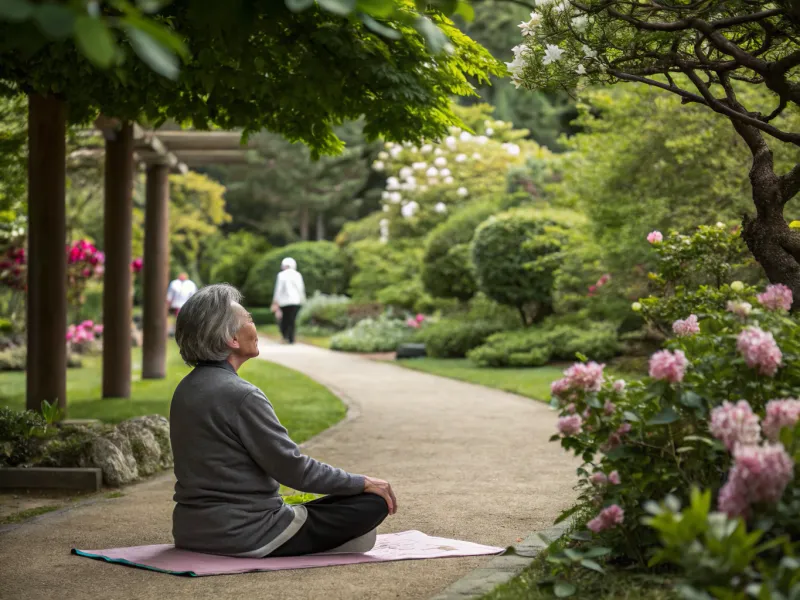
Building emotional resilience is crucial for navigating the challenges of aging alone. Developing coping strategies helps you manage stress, adapt to change, and maintain a positive outlook.
Practice mindfulness techniques such as meditation or deep breathing exercises to enhance emotional stability. Reflect on your experiences and learn from them, fostering a sense of inner strength and confidence.
Surround yourself with supportive individuals who uplift and encourage you. Building emotional resilience equips you to face life’s uncertainties with grace and determination, ensuring a fulfilling journey into your later years.
14. Exploring Hobbies and Passions

Pursuing hobbies and passions adds joy and purpose to your life. As a solo ager, investing time in activities that bring you happiness fosters a sense of fulfillment and personal growth.
Rediscover old interests or explore new ones, whether it’s painting, gardening, or playing an instrument. Engaging in creative pursuits enhances mental well-being and offers opportunities for self-expression.
Hobbies provide a sense of achievement and can even connect you with others who share your interests. By dedicating time to what you love, you cultivate a richer, more satisfying life.
15. Volunteering and Giving Back
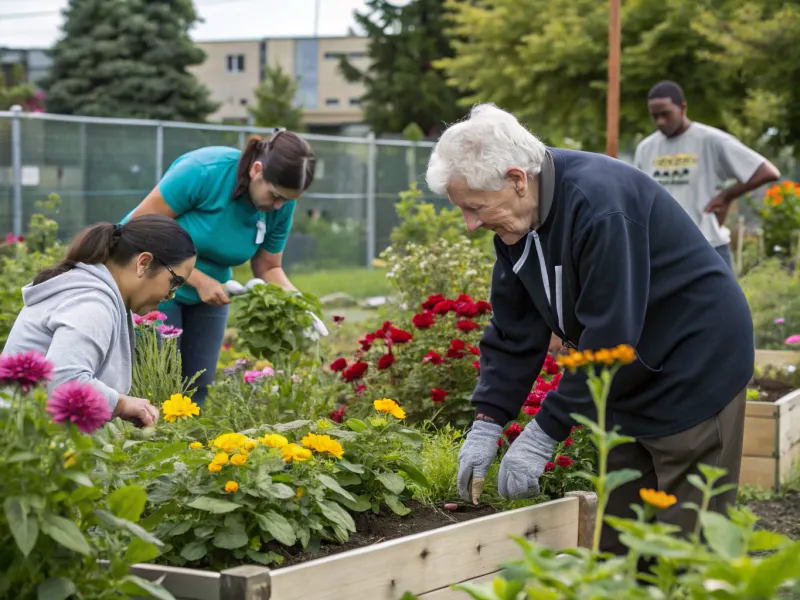
Volunteering offers a sense of purpose and community connection. As you age, contributing to causes you care about can enrich your life and impact others positively.
Explore opportunities to give back, whether through local charities, community projects, or mentoring. Volunteering fosters a sense of belonging and enhances your social network.
By sharing your time and skills, you create meaningful connections and make a difference in the lives of others. This active engagement provides fulfillment and reinforces your sense of purpose.
16. Maintaining a Positive Attitude
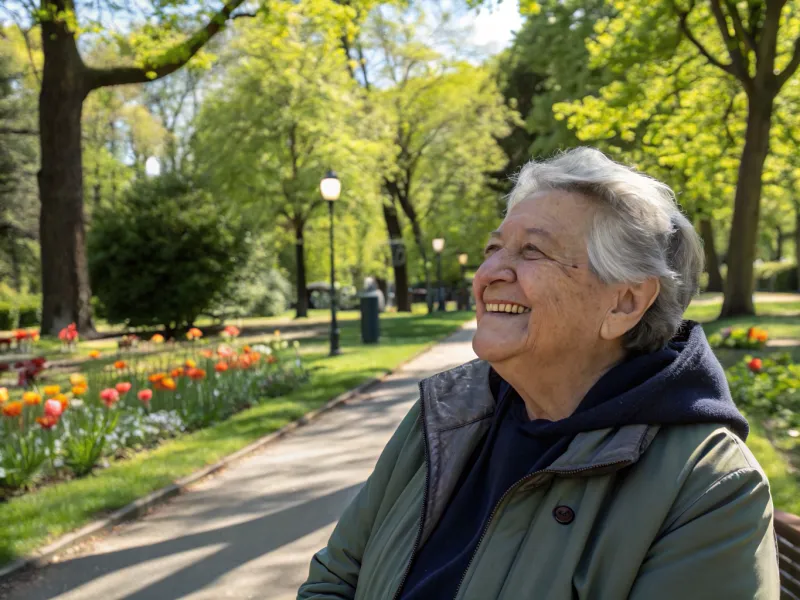
Cultivating a positive attitude contributes significantly to your overall well-being. Embracing optimism helps you navigate life’s challenges with resilience and grace.
Focus on the present moment and appreciate the small joys in everyday life. Practice gratitude by acknowledging the positive aspects of your experiences.
Surround yourself with uplifting influences, whether through music, books, or people. A positive mindset empowers you to face aging with enthusiasm and confidence, enhancing your quality of life.
17. Understanding End-of-Life Decisions

Facing end-of-life decisions is an integral part of preparing for the future. As a solo ager, it’s essential to ensure your wishes are clearly communicated and respected.
Consider discussing your preferences with a trusted advisor or counselor. Document your choices regarding medical treatment, funeral arrangements, and estate planning.
Being proactive about these decisions provides peace of mind and ensures your legacy reflects your values and desires. It also alleviates potential burdens on friends or community members who may be involved in carrying out your wishes.
18. Staying Connected with Family

Even if you don’t have immediate family, staying connected with extended family or chosen family is important. These relationships can offer support, love, and a sense of belonging.
Utilize technology to maintain contact, such as video calls or social media. Plan regular visits or reunions to strengthen these bonds.
Family connections, whether biological or chosen, provide emotional support and continuity. Nurturing these relationships enriches your life and ensures a network of caring individuals who share your journey.
19. Exploring Travel Opportunities

Traveling offers exciting opportunities for exploration and self-discovery. As a solo ager, embracing travel can broaden your horizons and enrich your life with new experiences.
Plan trips that align with your interests, whether it’s cultural tours, nature excursions, or culinary adventures. Travel solo or join group tours designed for older adults to connect with fellow travelers.
Experiencing different environments and cultures fosters personal growth and a deeper understanding of the world. Embrace the adventure of travel to create lasting memories and stories to share.
20. Ensuring Home Safety

Creating a safe living environment is paramount for solo agers. Ensuring your home is free from hazards reduces the risk of accidents and enhances your comfort.
Conduct regular safety assessments, focusing on features like lighting, handrails, and secure flooring. Install safety devices such as smoke detectors and grab bars in high-risk areas.
Consult with experts to identify potential improvements and implement changes that support your safety. A secure home environment allows you to live independently with confidence and peace of mind.
21. Setting Personal Goals

Setting personal goals provides direction and motivation in your later years. As you age, establishing clear objectives helps maintain a sense of purpose and achievement.
Reflect on your passions and interests to identify areas for growth. Whether it’s learning a new skill, improving health, or building relationships, setting goals aligns your actions with your values.
Regularly reviewing and adjusting your goals ensures they remain relevant and attainable. By striving towards meaningful objectives, you enrich your life with a sense of progress and fulfillment.
22. Networking for Support

Building a network of support is vital for solo agers. Engaging with your community and forming connections provides practical assistance and emotional encouragement.
Attend social gatherings, join local clubs, or participate in community projects to meet new people. Networking creates opportunities for collaboration and mutual aid.
A strong network enhances your resilience and ability to tackle challenges. By fostering these connections, you ensure a supportive environment that contributes to your well-being.
23. Preparing for Health Changes

Anticipating health changes is a proactive approach to aging. Understanding potential challenges allows you to take preventive measures and maintain your well-being.
Engage regularly with healthcare providers to monitor your health and address concerns. Stay informed about common age-related conditions and explore strategies to manage them effectively.
By being aware of your health and seeking timely interventions, you enhance your quality of life. Staying proactive ensures you remain active and engaged as you navigate the aging process.
24. Maintaining Mental Health

Mental health is a crucial aspect of aging well. As a solo ager, prioritizing mental well-being is essential for maintaining a balanced and fulfilling life.
Engage in activities that promote mental clarity and emotional resilience, such as meditation, therapy, or creative pursuits. Recognize the importance of addressing stress and seeking support when needed.
By nurturing your mental health, you equip yourself to handle life’s challenges and embrace opportunities with a positive outlook. Mental wellness enhances your ability to live independently and joyfully.
25. Exploring Alternative Therapies

Exploring alternative therapies can complement traditional medical approaches and enhance your well-being. Solo agers can benefit from practices that promote relaxation and holistic health.
Consider therapies such as acupuncture, massage, or aromatherapy to address specific health concerns or enhance overall wellness. These practices can offer relief from stress and physical discomfort.
Integrating alternative therapies into your routine provides a holistic approach to aging. By exploring diverse healing methods, you support your body’s natural ability to maintain balance and vitality.
26. Addressing Loneliness

Loneliness can be a significant challenge for solo agers, but it’s important to address it proactively. Building connections and engaging in social activities can mitigate feelings of isolation.
Seek out opportunities to interact with others, whether through clubs, volunteer work, or community events. These interactions foster a sense of belonging and enrich your social life.
By actively combating loneliness, you enhance your emotional well-being and cultivate a supportive environment. Embracing social opportunities ensures a vibrant and connected life as you age.
27. Home Automation Integration

In a world increasingly driven by technology, integrating home automation systems can be a game-changer for solo living. Smart homes offer convenience, safety, and efficiency, allowing individuals to control everything from lighting to security systems remotely. This technology not only enhances daily life but also provides peace of mind.
For those without close family nearby, smart technology can monitor home safety and health. Devices like smart fridges, voice-activated assistants, and automated lighting systems make life easier and more enjoyable. With the right setup, home automation offers both practical benefits and a sense of futuristic comfort.
28. Pet Companionship

Imagine coming home to a wagging tail and a pair of loving eyes. Pets can offer emotional support and companionship, greatly enhancing the quality of life. They not only provide unconditional love but also offer a sense of responsibility and routine. Caring for a pet can also encourage social interactions, as walks and vet visits open up opportunities to meet new people.
For someone living alone, a pet can be a comforting presence. The bond formed with a furry friend can alleviate feelings of isolation, bringing joy and laughter to everyday life. Embracing a pet might be one of the most fulfilling decisions for those without immediate family ties.







